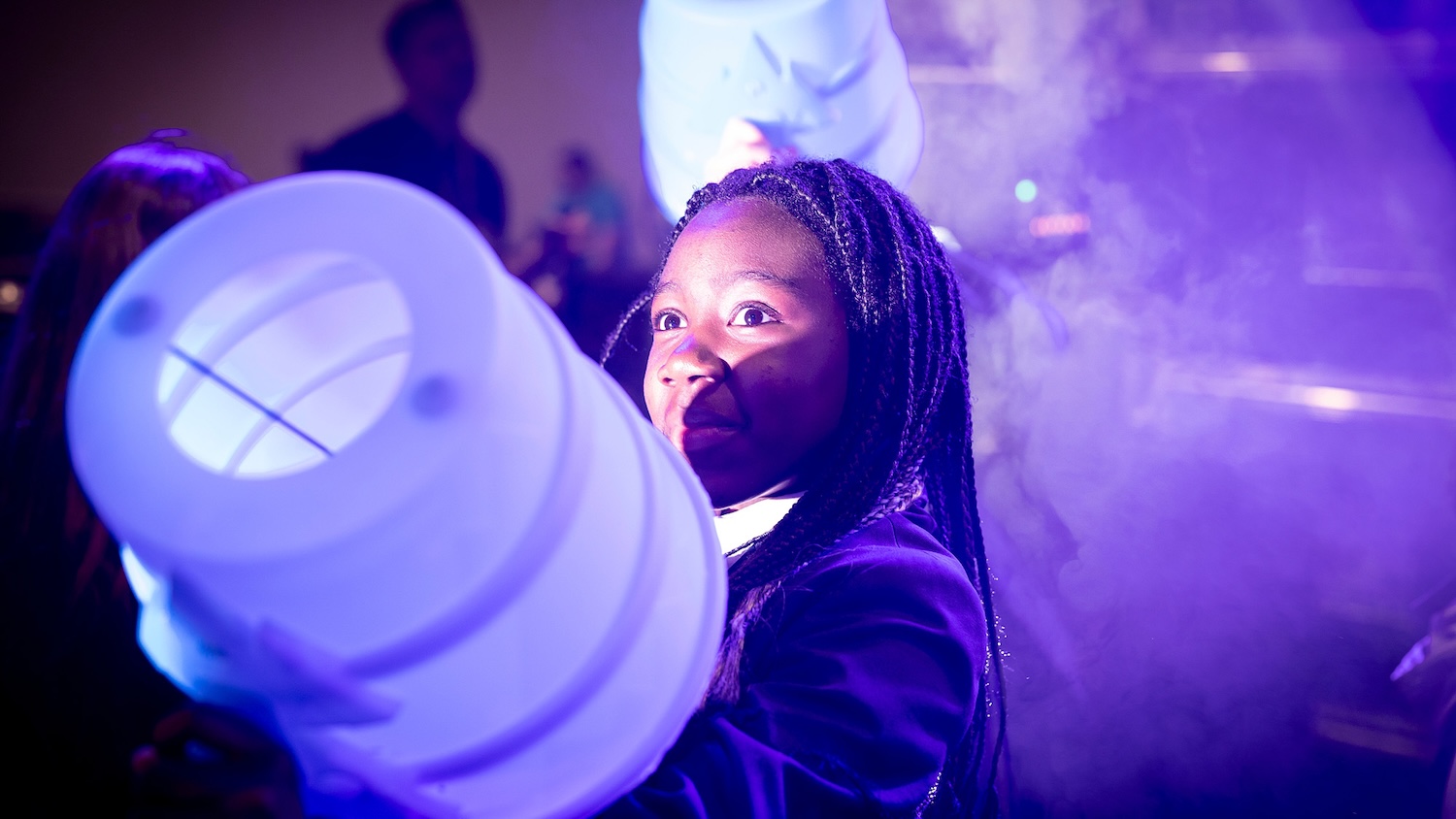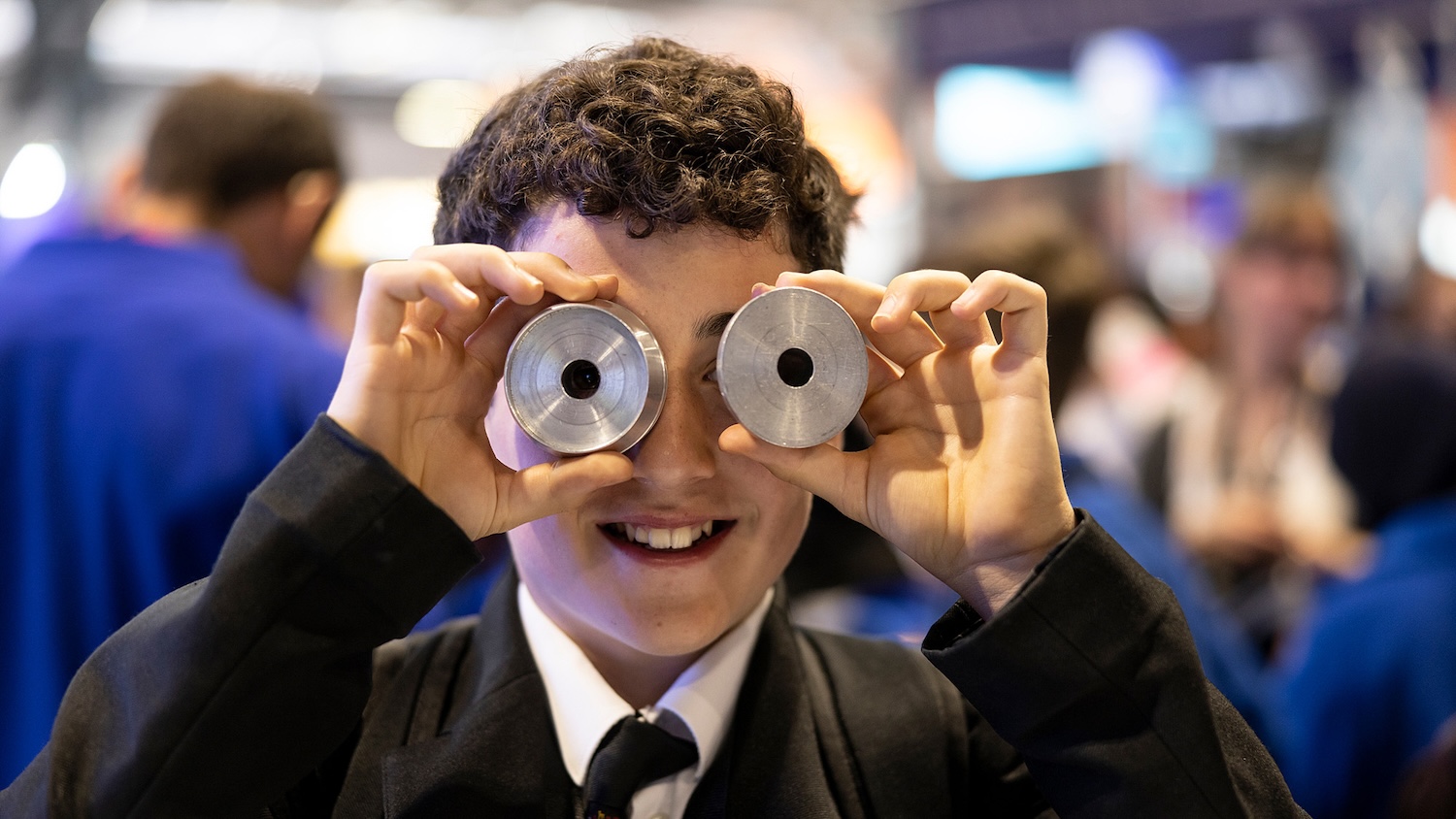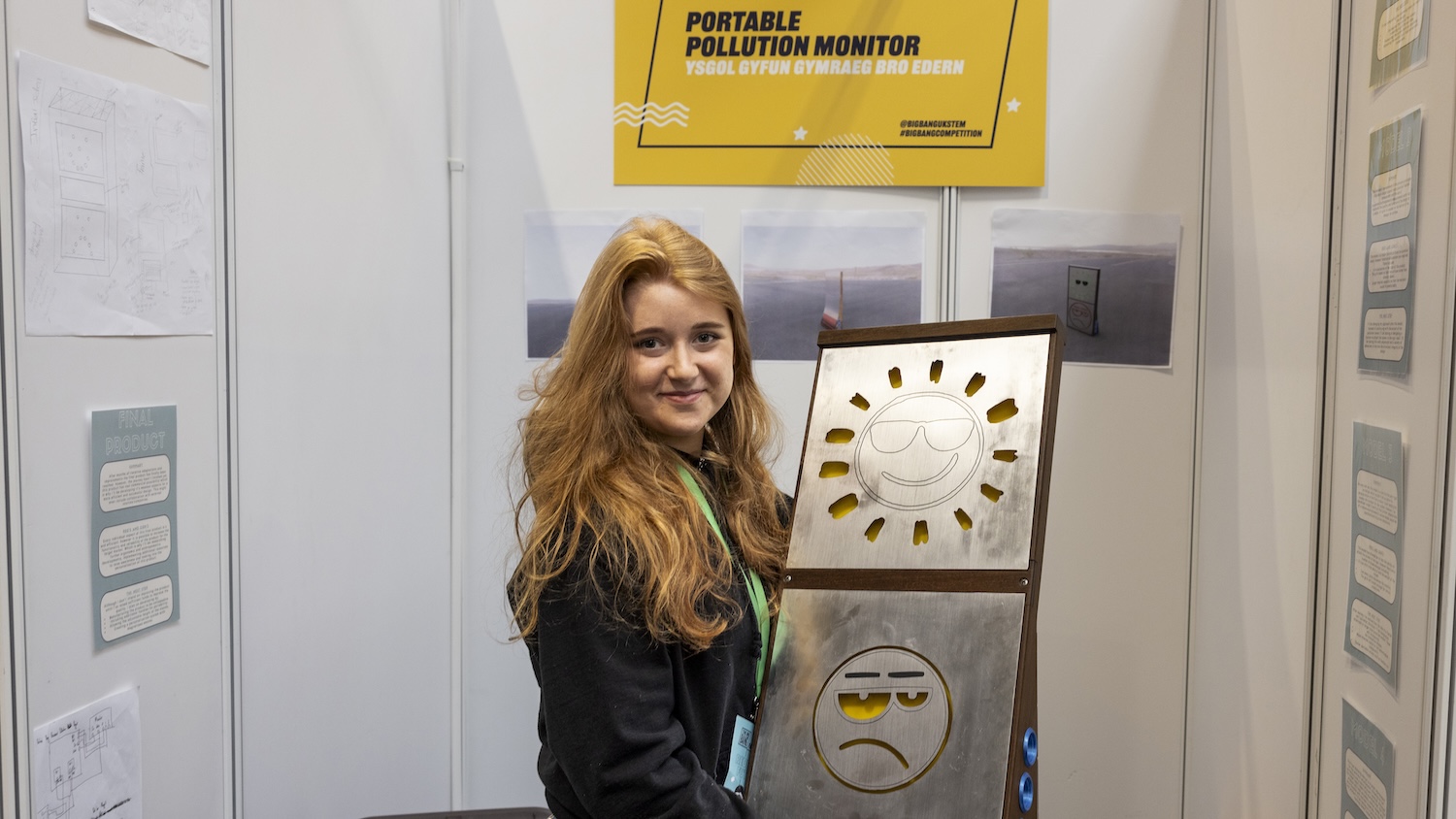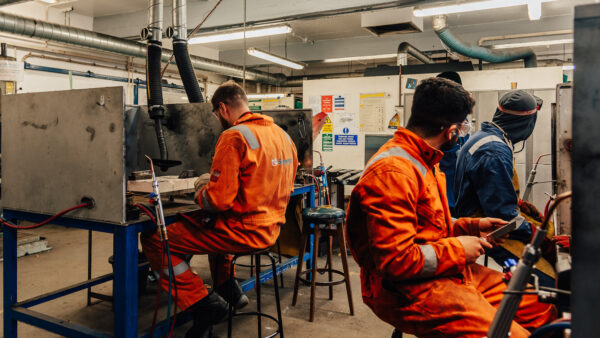
Since 2009, the Big Bang programme has been on a mission to make STEM subjects more attractive to students.
It is estimated that the ongoing shortage of STEM skills is costing the UK economy £1.5bn a year through expenses incurred in recruitment, temporary staffing, training and inflated salaries.
This is not only damaging to the country’s financial health but also a missed opportunity for young people and adults who could be pursuing skilled employment in a rewarding and innovative sector.
Over the past decade, GCSE entries in design and technology have fallen by 68% and the number of teachers in those subjects has halved, according to a 2024 Design Council report.
To address this shortage, in 2009 independent not-for-profit EngineeringUK launched its Big Bang programme in partnership with organisations across industry, government, education and the wider science and engineering sector.
The programme started as a response to Lord Sainsbury’s 2007 review of the government’s science and innovation policies, The race to the top, and the industry’s need to make STEM careers more attractive to schoolchildren and teenagers, explains Phillip McShane, associate director at the Big Bang programme within EngineeringUK.
Since piloting the Big Bang UK Young Scientists & Engineers Fair 15 years ago, the programme has reached more than 1.5 million young people.
Although the fair has been criticised in the past for featuring companies from the arms industry, EngineeringUK notes that its supporters’ profile changes annually to represent the variety of career options in the sector.

The Big Bang programme is well recognised and valued by industry and sees significant appetite from schools
“The Big Bang programme is well recognised and valued by industry and sees significant appetite from schools.
“As an example, bookings for 10,000 young people were made within the first 24 hours of registration for the Big Bang Fair opening this year,” says McShane.
“And it evaluates well with teachers and young people. At last year’s Fair, 83% of students we surveyed said that as a result of attending [the event], they were more interested in a job involving engineering in the future.
“And 73% of teachers said they are more likely to suggest a career in engineering to a student after attending.”
Challenging stereotypes
The programme includes three different elements:
- The Big Bang Fair, which features hands-on activities, live shows and career panels
- A national competition of STEM projects by students aged 11 to 18
- The Big Bang at School, which offers a toolkit and support for schools to host their own STEM days.
Together, each part of the programme aims to address the most significant challenges preventing young people from considering STEM jobs, such as a lack of awareness of STEM careers and persisting stereotypes around STEM being too difficult, boring or “only for certain types of people”.
These stereotypes didn’t escape Pacha Pritchard, the 2024 Big Bang Competition’s Engineer of the Year.
Pritchard scooped the award for her portable pollution monitor, designed to measure local air quality, an entry that was lauded by EngineeringUK’s chief executive as “impressive”.
We need a curriculum that highlights the wide variety of STEM roles, so every student can see themselves represented
“At first, I found STEM subjects quite intimidating: there’s a stereotype that they’re unapproachable and extremely difficult,” Pritchard tells CM People, who won the competition when she was a Year 12 student.
“It wasn’t until [my teacher] Dewi Thomas at Ysgol Gyfun Gymraeg Bro Edern encouraged me that I began to believe I could pursue science and engineering.
“His support opened my eyes to the possibilities and set me on this path. I’m forever grateful; without teachers like him, I doubt I’d be where I am today.”
Now a strong advocate for diversity in STEM, Pritchard thinks that to tackle stereotypes and foster STEM among students of all backgrounds, the UK needs more engineers and scientists whose experiences reflect the communities they serve.
“Competitions like the Big Bang make STEM more accessible, hopefully guiding younger generations into these fields. In my school, STEM is embraced by students of all backgrounds,” she continues.
“I think the change is happening at that level across the country. Yet many of the factory floors of manufacturing companies or construction sites still have a predominantly male workforce.
“To change that, we need a curriculum that highlights the wide variety of STEM roles, so every student can see themselves represented.”

Not ‘just bridges’
Pritchard thinks that many students are not aware of the wide range of careers within STEM and that a gap between learning the theory in school and accessing real-world opportunities complicates things even further.
“If you don’t see it, you can’t aspire to it,” she says.
McShane agrees. “The biggest obstacle is young people just not being aware of how many different careers are available in engineering [and] in tech… or thinking ‘it’s just bridges’.
“They may also think it’s not really for them or understand the entry routes. Engineering and tech pay above-average wages, which needs to be better communicated, and there are many different routes in.”
He adds: “We need to inspire young people – especially girls – to be engaged with STEM at primary school as we know some young girls are switching off from science in secondary schools.”
If she were a policymaker, Pritchard would fund partnerships between schools and local engineering firms to offer apprenticeships, site visits and hands-on workshops.
“Embedding practical STEM experiences into early education would demystify these careers and show students the real impact they can make,” she says.
To ensure that the Big Bang reaches communities across the UK, including people who are underrepresented or underserved in STEM education and careers, all elements of the programme are available free of charge to schools and students, McShane adds.
“This removes cost as a barrier to access,” he says. “In its work with schools, EngineeringUK aims to reach young people from groups who are underrepresented in the engineering and technology profession.
“The programme actively works to engage girls, students from minority ethnic groups, and those from lower socioeconomic backgrounds by showcasing diverse role models and inclusive messaging.”
Following her success at the Big Bang competition, Pritchard is now keen to pursue a career in environmental science and engineering, with a focus on sustainable development – which she describes as “a longstanding passion”.
She adds: “I feel a deep sense of responsibility to steward our planet responsibly and to develop infrastructure that benefits both people and the environment.”
Pacha Pritchard’s House of Commons speech to politicians and industry specialists

“My name is Pacha Pritchard, and I’m deeply honoured to have been awarded UK Young Engineer of the Year 2024 at the Big Bang Competition.
“I want to share a little bit about my journey with this project, why I entered the Big Bang Competition, and what it’s taught me – not just about engineering, but about the future we’re all shaping together.
“I decided to enter the Big Bang Competition because I wanted to push myself and explore ways to contribute to the world. Growing up, I’ve watched as pollution and climate change impact people’s lives and health, and I knew I wanted to make a difference.
“I’ve always been interested in understanding how things work, and engineering has given me a toolkit to create solutions for real-world problems.
The Big Bang Competition gave me the perfect platform to turn my curiosity into a project that could bring positive change/in
“The Big Bang Competition gave me the perfect platform to turn my curiosity into a project that could bring positive change.
“My project, which I’m excited to share with you today, is a portable pollution monitor. It’s designed to measure pollution particles in the wind, along with environmental baselines like humidity, pressure and temperature.
Using a micro:bit, it calculates the pollution level and communicates the result with a relay that lights up in either green with a happy face for safe conditions, or red with a sad face if the air quality is poor.
“My aim was to create something accessible, portable and easy to use – a tool to help everyone understand air quality in real time.
“I hope it will continue to contribute to raising awareness of the air we breathe and encourage communities to take action against pollution.
“Working on this project has taught me more than just electrical engineering. I’ve learned how much can be achieved with determination and a bit of creative thinking.
“Engineering isn’t just about machines and programming; it’s about problem-solving, empathy, and hope. It’s about imagining a world that’s healthier, cleaner, and safer, and working toward that vision.
“Completing this project reinforced my belief that young people – and especially young women – have an essential role to play in STEM. We bring fresh ideas and perspectives that our planet desperately needs.
“As a young woman in engineering, I feel a responsibility to inspire others. For too long, women have been underrepresented in these fields, but that’s changing. With every project like mine and every young person taking part in the Big Bang Competition, we’re showing that STEM is for everyone.
“The challenges our world faces – pollution, climate change, and beyond – will require diverse minds and collaborative solutions. So, I’m here to encourage other young people, especially girls, to dream big and pursue their interests in science and engineering.
“The path may not always be easy, but the potential to make a difference is worth it.
“Thank you again for this opportunity. I’m honoured to represent the next generation of engineers and hopeful about the solutions we’ll create together to care for our planet and our communities.”
Comments
Comments are closed.









Good to see the promotion of the Big Bang – I have been ‘banging’ on about the success of this initiative for a long time. As a board member of EngineeringUK some years ago, I was privileged to be involved in its setting up and to see its first modest initial target of engaging 5,000 schoolchildren and students expand dramatically to the 75,000 visitors every year including more than 20,00 students between the ages of 10 and 18. But it is frustrating to see the lack of construction and built environment industry involvement – as the headline says, “It’s not just bridges…”